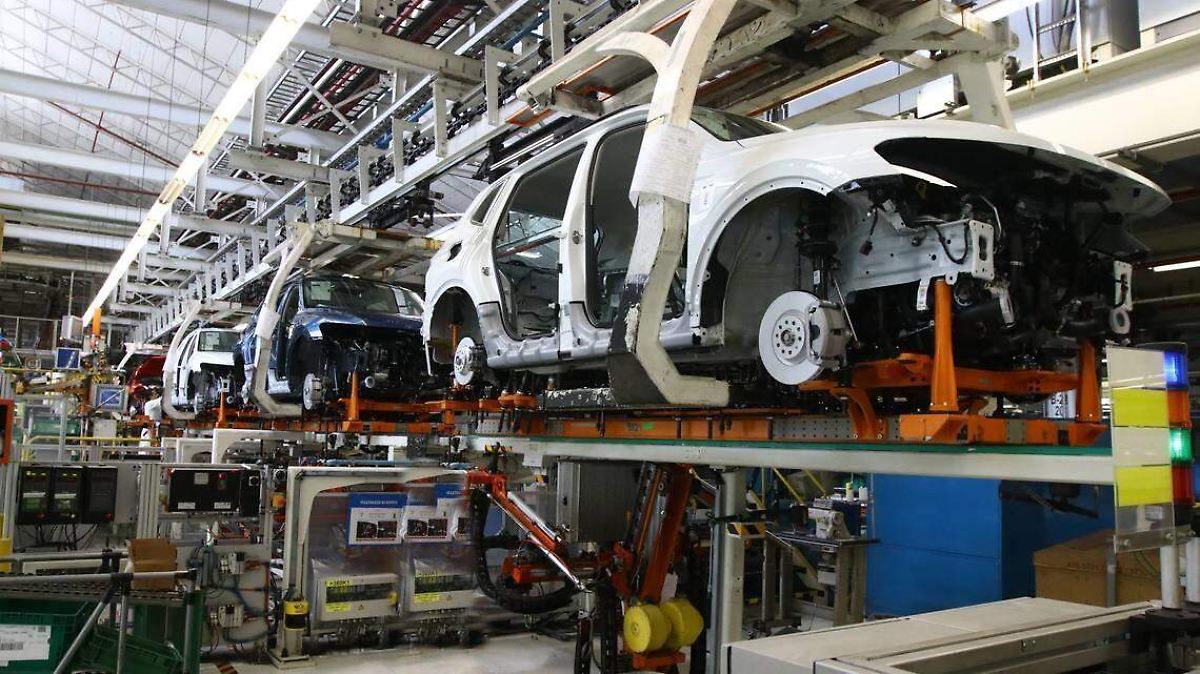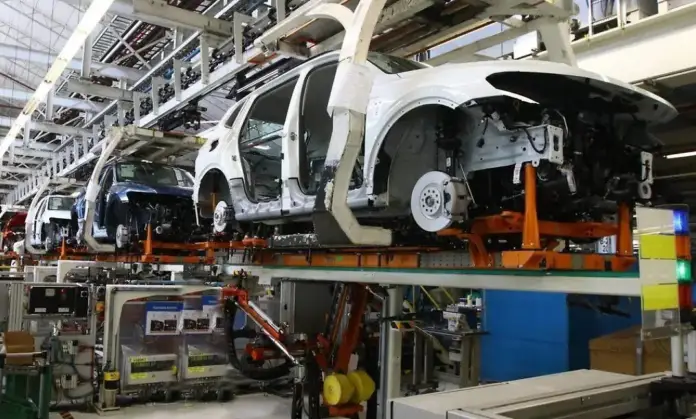Alejandro Rangel Segovia, general secretary of the Union of Workers of the Metal Mechanics Automotive Industry (SITIMM), said that due to the imposition of 25% tariffs that the United States intends to impose on vehicles manufactured in Mexico, the assembly plants installed in Guanajuato would be eliminating the figure of overtime, since it is expected that there will be a decrease in production, although it is not expected that it will be so high.
In an interview with the Mexican Editorial Organization, Alejandro Rangel Segovia explained that 2024 was a good year for companies such as Honda, Hino and Toyota, since they had good sales in the United States, which increased production and even the workers of these firms installed in Guanajuato had to work overtime, which improved their income and their economy.
Alejandro Rangel highlighted that 95% of the production that Toyota makes in Guanajuato is for export. He also explained the case of the Honda plant, which manufactures two cars in Guanajuato and, although it has a lower percentage of exports to the United States, since around 55% go to that market, the expectation is the same as with Toyota trucks due to the introduction of tariffs.
“I must say that, in both cases, the expectation at the end of 2024 regarding the demand for both vehicles was very high, very high; in the case of the Tacoma trucks, we are going to be working overtime all year, of course with the limitations that the law provides, all in order to be able to reach the expected demand at the end of 2024.”
The general secretary of SITIMM explained that the installed capacity that the Toyota plant currently has would not be enough naturally to cover the production demand, so he pointed out that this plant is not at risk and they do not even foresee layoffs, nor new hires.
“The worst scenario is that we would not have to work the extra time that we have planned and only the normal times to produce the Tacomas at the Toyota plant, while for Honda, we would also go to normal terms to do the production.”
This same fate would befall the companies that have the supply for these plants, which are around 30 installed in Guanajuato for both automakers, so SITIMM remains on the lookout for how this tariff phenomenon would evolve and its impacts on the automotive sector.
There is a direct relationship with the automakers
Alejandro Rangel explained that the imposition of tariffs would be affecting the final price of the product, but he pointed out that so far they continue with a high demand for vehicles from the United States towards the end of 2024.
“We have a direct relationship with the workers and managers of companies such as Honda, Toyota and Hino Motors and what I have been able to visualize in this regard is a possible decrease in sales, because the direct indexation that would have to be made of that intended 25% tariff payment would have to be added to the final price of the vehicles that are being exported to the United States.”
He gave the example of Toyota, which in Guanajuato manufactures the Tacoma pickup truck, one of the best-selling in the United States, and that 25% tariff would be added to it when it is on sale in the United States, which would probably bring a drop in demand during the course of the year; However, he reiterated that it is not entirely certain, as the current demand for this vehicle is still good.
“Let’s suppose that a Tacoma truck costs one million pesos, then it would have to be sold for one million 250 thousand pesos in the United States, that would surely cause the demand for trucks to decrease and they would prefer, perhaps, just perhaps, other trucks with the same price and perhaps with other characteristics.”
.webp)
Source: oem




